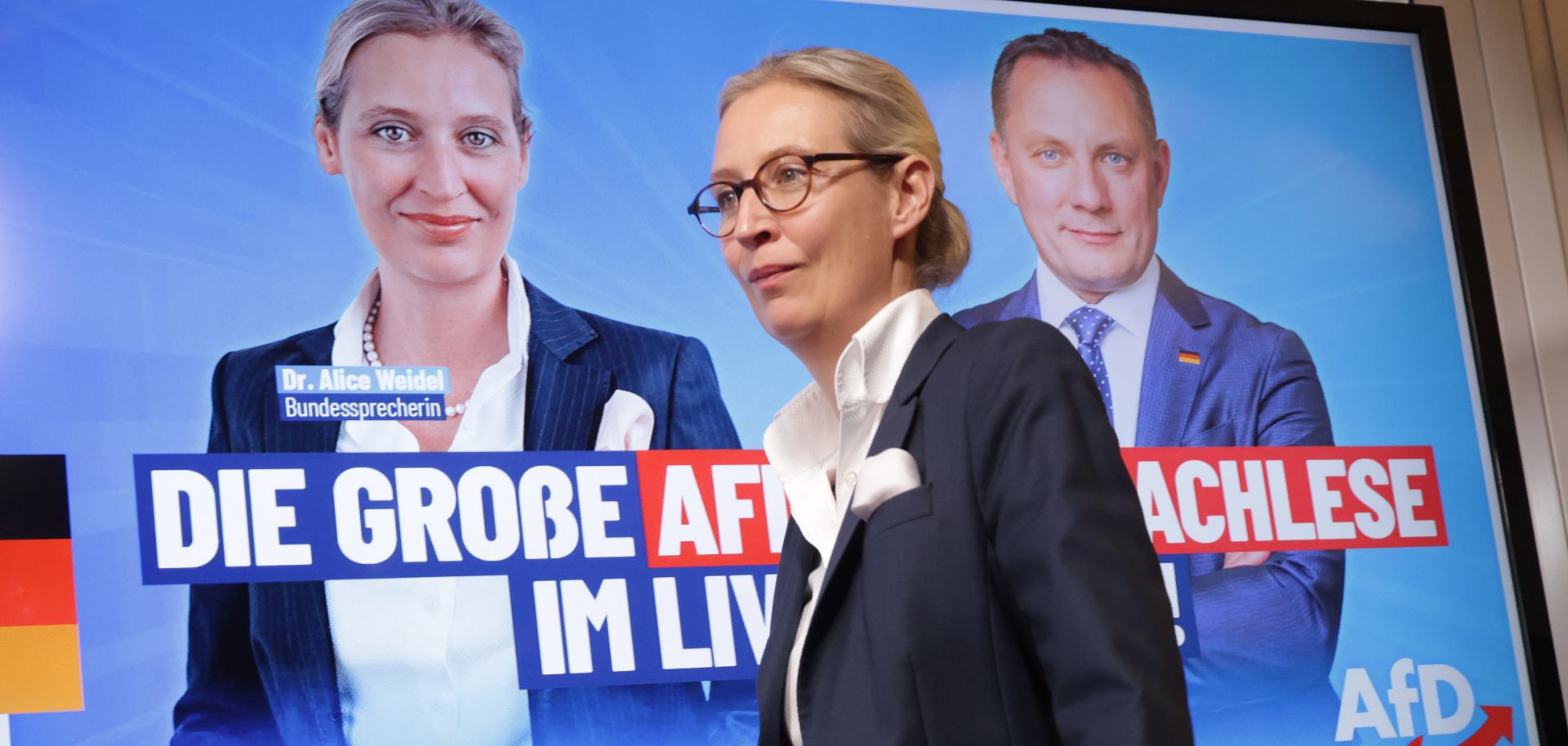Mainstream parties in Germany will maintain unity in keeping the far-right Alternative for Germany (AfD) party out of government at the federal level, but the AfD's strong support in eastern Germany could increase its influence at the state level, while further contributing to the country's growing political polarization. In recent years, the AfD has become increasingly popular in Germany, as evidenced by the far-right party's strong performance in the recent European Parliament elections in which it secured over 16% of the vote -- the AfD's best-ever result in a nationwide ballot. Fueled by concerns with rising migration levels, economic grievances in the county's east and a general dissatisfaction with mainstream party politics, the party continues to poll strongly nationwide, with the AfD currently slated to win 17% of the vote in Germany's 2025 federal election, up from the 10.2% it won in the 2021 election. Support for the AfD is...

